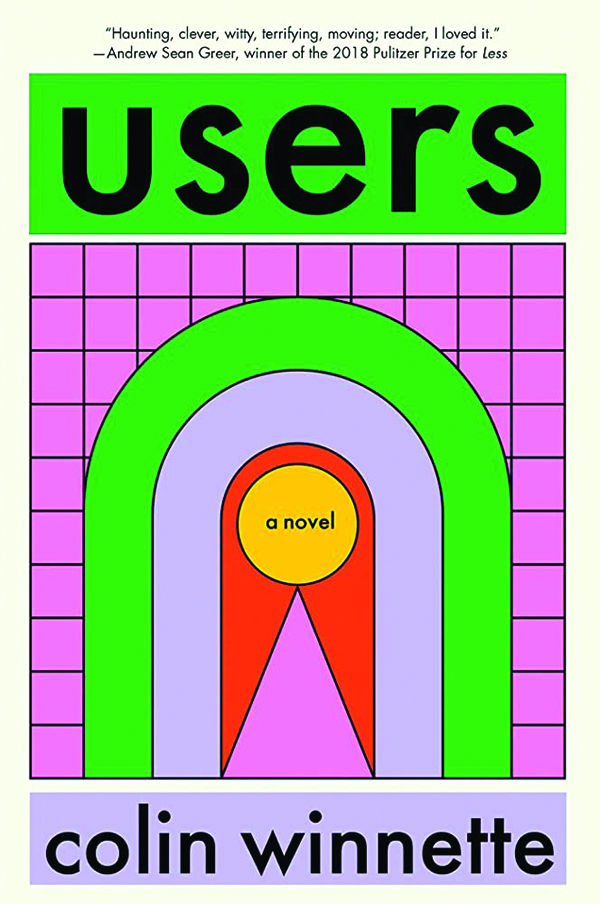
Technology makes Users of us all
Derek Robertson
Literature invented the metaverse decades before Mark Zuckerberg renamed his digital empire after it and started spending billions to try to make the virtual world a reality. In the 1992 sci-fi epic Snow Crash, the first use of the term “metaverse” sits nested in a thicket of author Neal Stephenson’s usual provocations about politics, religion, and technology. It was perhaps inevitable it would have appeared in fiction: Like invisibility or time travel or vampirism, the idea of a totalizing three-dimensional virtual world provides an irresistible tool with which to explore the human condition. Untethered from the material world and its messy constraints, what would you do? Who would you be?

In the years since Stephenson crystalized that conflict, building on the groundwork laid by William Gibson’s Neuromancer nearly a decade earlier, a slew of high-profile novels has used the concept to burrow ever-deeper into authors’ intellectual and emotional preoccupations. Ernest Cline’s Ready Player One proposed, unintentionally, a dystopia where all cultural life is generated and dominated by nostalgia-obsessed fanboys. The metaverse featured in Gibson’s recent novels is an espionage-filled venue where stylish operators labor to set right our unsatisfying real-life one. Jennifer Egan’s The Candy House, from last year, warns of the danger posed by the networking of pure consciousness, with its inevitable and humanity-destroying temptation to clairvoyance.
Users, published last month by Penguin Random House imprint Soft Skull Press, pulls at a similar thread, albeit on a smaller scale than Egan’s dizzying micro-epic. Author Colin Winnette usually traffics in blood-and-mud-caked frontier Gothic, but here he trades in that setting for the smooth, button-free surfaces of Silicon Valley in, as always, the Very Near Future. His stereotypically gormless protagonist is a man named Miles, a project manager at a Facebook-like tech corporation who invents a world-changing virtual reality product called “the Egg.”
When we meet Miles he’s in a bit of a tough spot. For one, he’s receiving anonymous death threats delivered to the home he shares with his wife and two daughters. The threats get the book’s plot moving, but more importantly, they fire up the novel’s true engine: Miles’s raging, all-consuming anxiety, which drives him to wet the bed and to avoid his family by talking endlessly to a crisis hotline. Eventually, it drives him into the ever-loving arms of the virtual world he conjures through the Egg.
The novel’s first half is dedicated to establishing Miles’s domestic and professional dramas, before the weird yet inevitable consequences of his invention manifest. Unfortunately, Miles isn’t much fun to spend time with. You know the type: worried about his middle-aged paunch, his ball-busting wife he can never quite stand up to, the many bucks that must be passed before his workday can come to a close. Miles is clearly meant as a type, a send-up of today’s archetypal email-job-having Man From Nowhere. But when the type is already so pitiable and without real-world esteem, the attempt to skewer it comes off more like a dreary puppet show. You hear Rodney Dangerfield’s voice, faintly, just outside the frame. Can somebody get this guy a drink?
Miles’s claim to fame is the invention of a virtual reality program called “The Ghost Lover,” which uses a series of mentalistlike tricks based on details from the user’s personal life to simulate the experience of his or her house being haunted by an ex. “An experience just south of actual life, but with real-world implications,” something Miles hopes “would reconnect users to their pasts, open them up to the world of ghosts as he understood it, or as the internet had tried to explain it to them.” It’s not based on any particular ex-, girlfriend or -perience, Miles has had. It’s simply a crowd-sourced invitation to maudlin self-indulgence. You can see why it would take off.
When “The Ghost Lover” gets “canceled” by a social media campaign that takes up blessedly few of the novel’s 271 pages, Miles scrambles to build a new product that will deflect attention from it. Hence the Egg, a full body-encompassing pod that users climb into, attaching themselves to a suite of haptic feedback devices that provide complete sensory immersion in virtual worlds that are conjured from their own thoughts. Miles at first resists his own invention’s charms, finding it, understandably, creepy. But after reaching a breaking point with his sundry domestic dramas, he eventually succumbs, setting in motion a series of events that will eventually force him to (sorry) rage against the machine, with his own humanity and life in the balance.
When Miles climbs into the Egg, an image is eventually drawn from his subconscious so dark and sordid that the reader must admire Winnette simply for including a plot device that all but ensures the book will never be adapted into an Apple TV miniseries. For this thoughtcrime, recorded of course to the cloud, Miles isn’t publicly jailed or pilloried but merely fired, and quietly. After all, his company wouldn’t want to hurt the stock price or the Egg’s sales prospects. He drinks. His wife leaves him. He reads self-help books. Eventually, he goes back to the Egg.
Users reserves the big sci-fi reveal for the last 20 pages, in which Miles’s fear of life leads him, samsaralike, unto death, via the pod-sized metaphor that is the Egg. The short version: After entering it, he then enters an Egg within the Egg, trapping himself, or his consciousness, inside the experience with no clear way out. The novel closes with a display commanding him to “BEG DANCE OR DIE” in the face of virtual annihilation, leaving his fate in the balance — and, implicitly, ours, as we put down the book and return to our own all-consuming digital prompts.
Despite Miles’s poor company, Users reaches a pleasingly elliptical plateau of creepiness in its second half that successfully evokes the dread induced by real-life screen hypnosis. The book never quite reaches the fever pitch as a techno-thriller, nor does it move satisfyingly beyond pastiche in its domestic drama. But the juxtaposition of its folktale-dark tone with the gleaming, upper-class world of consumer technology it sends up leaves a lasting impression — as does Winnette’s talent for leaving the reader to imagine the horrors just outside the story’s edges, as a good campfire yarn-spinner should.
Haruki Murakami, the world heavyweight champion of pop-literary allegorical sci-fi, wrote in his 1985 Hard-Boiled Wonderland and the End of the World of a man similarly split in two between his “true self” and a shadow self, with only machines to navigate and blur the boundaries. In Alfred Birnbaum’s translation, a folksy professor explains the dilemma by way of Zeno’s paradox:
“The problem’s the software, no relation to the hardware. It could be a toothpick or a two-hundred-meter timber or the equator — doesn’t matter… Your body dies, your consciousness passes away, but your thought is caught in the one tautological point an instant before, subdividin’ for an eternity… Time is hurlin’ that arrow forward. And yet, like I was sayin’, thought goes on subdividin’ that time for ever and ever. The paradox becomes real. The arrow never hits.”
In Winnette’s metaverse, the titular “users” become intimately familiar with that paradox as a sort of devil’s bargain: perpetual motion and stimulation in exchange for any hope of agency or catharsis. You log on, you offer some personal information, you’re cast into an endless stream of content tailored by bloodthirsty advertisers just for you. You get tired, you log off, you look around, and there it is: “reality,” with its actual desires and their inspiration but in a decidedly more wan and less perfected form than their algorithmically conjured digital counterparts. Your mind’s arrow keeps flying, but it never hits its mark. Where else is there to go? Back to the egg.
Derek Robertson co-authors Politico’s Digital Future Daily newsletter and is a contributor to Politico Magazine.
